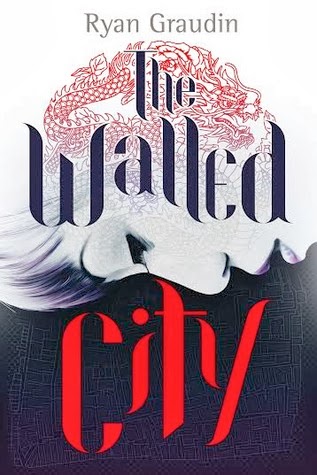Title: Panic by Lauren Oliver
Published:
March 4th, 2014 by HaperCollins
Source:
ARC (thanks to ALA!)
Format:
Paperback
Genre:
Contemporary
Age
group: Young adult
Reviewer: Arianne
Grade
rate: C
Panic
began as so many things do in Carp, a dead-end town of 12,000 people in the
middle of nowhere: because it was summer, and there was nothing else to do. Heather
never thought she would compete in Panic, a legendary game played by graduating
seniors, where the stakes are high and the payoff is even higher. She’d never
thought of herself as fearless, the kind of person who would fight to stand
out. But when she finds something, and someone, to fight for, she will discover
that she is braver than she ever thought. Dodge
has never been afraid of Panic. His secret will fuel him, and get him all the
way through the game, he’s sure of it. But what he doesn't know is that he’s
not the only one with a secret. Everyone has something to play for. For
Heather and Dodge, the game will bring new alliances, unexpected revelations,
and the possibility of first love for each of them—and the knowledge that
sometimes the very things we fear are those we need the most.
Lauren
Oliver specialises in using human emotion as the centrepiece of her work. She
did it in Delirium, where love became a disease and joy a far-off dream. And
she does it again in Panic, one of this year’s most highly anticipated new
releases.
With vision
and finesse, Oliver has set her most epic concept yet against a stark
backdrop of small-town claustrophobia. Capitalising on a tumult of
teenage angst – from loneliness and despair to anger and resentment and back
again – she paints a vivid if somewhat bleak picture of what life can be like
in a world that’s constantly trying to tear you down.
One thing
that goes without question is the fact that Lauren Oliver is simply an
incredible writer. She’s one of the few I know who could pull off third
person present narration, but she doesn’t just settle for one narrator, she
goes with two! Panic is more than just a string of sentences thrown
together into roughly YA shape. Every word is carefully chosen. It’s soaked
with style. It’s written with the title in mind, and the prose hurtles
forward with the force of an oncoming train – yet at the same time, there is an
element of the psychological thriller about it, and there are some scenes which
just sizzle with the effects of slow-burning tension and secrets.
Heather and
Dodge are hiding things from themselves as well as others. Dodge, the boy from
the wrong side of the tracks, has a fierce determination to win and an even
more fierce determination to get revenge in the only way he knows how. I
liked Dodge, but didn’t love him, though I admired his strength and story.
Unfortunately, Heather really let me down. It’s in keeping with the
stagnant atmosphere of Carp as a town, but she seemed lost without a guy by her
side and she’s not very individual.
And with
such problems in the cases of the main characters, it’s no surprise that the
secondary characters fall flat as well. Natalie and Bishop never seemed
real to me. I appreciated that Oliver was trying to tackle tough themes and
issues she’d never broached before, but it just didn’t really work out in her
favour. Harsh realities become gratuitous, dragging details and there’s no
vibrancy to anchor yourself to as a reader.
As a plot
construct, the Panic game is remarkably simple, but in reality, it has huge
risks and all too often, devastating consequences. Nobody knows who the judges
are and it’s obviously played outside the realms of the law. Like the
overcoming of fear in Veronica Roth’s Divergent, Panic too focuses on tackling
the doubts and nightmares of the teenage players. I was willing to suspend my
disbelief to begin with, but when I discovered that the adults of the town were
still completely oblivious to the game despite it already having cost lives
(and rewarding several winners with inordinate sums of money) even my interest
in it began to wane. Also, when they started keeping tigers in captivity and
players refused to take responsibility for the damage they were causing to
others, physically, mentally and emotionally? Not cool. Everyone kept giving
excuses and I was totally exasperated with them by the end.
In
short: Panic pulses with dramatic intensity and social contrast. Fans of the
author will recognise her style and epic depiction of the simplest human
emotions, while new readers will be awed by the tension and action which define
the harsh landscape of its plot. It’s not for everyone, however, as it requires
huge suspension of disbelief on the reader’s part and there are some major
faults which jump out from the page now and again. I don’t think it will become
an enduring favourite for me, but I hope it’s not the last Lauren Oliver book
I’ll read.
























